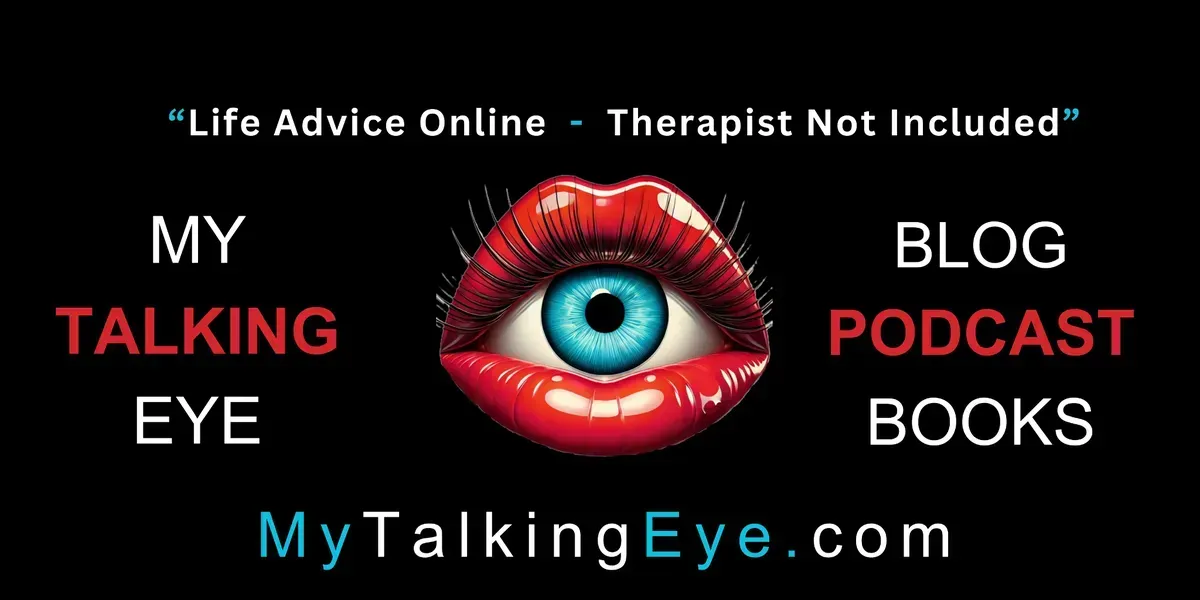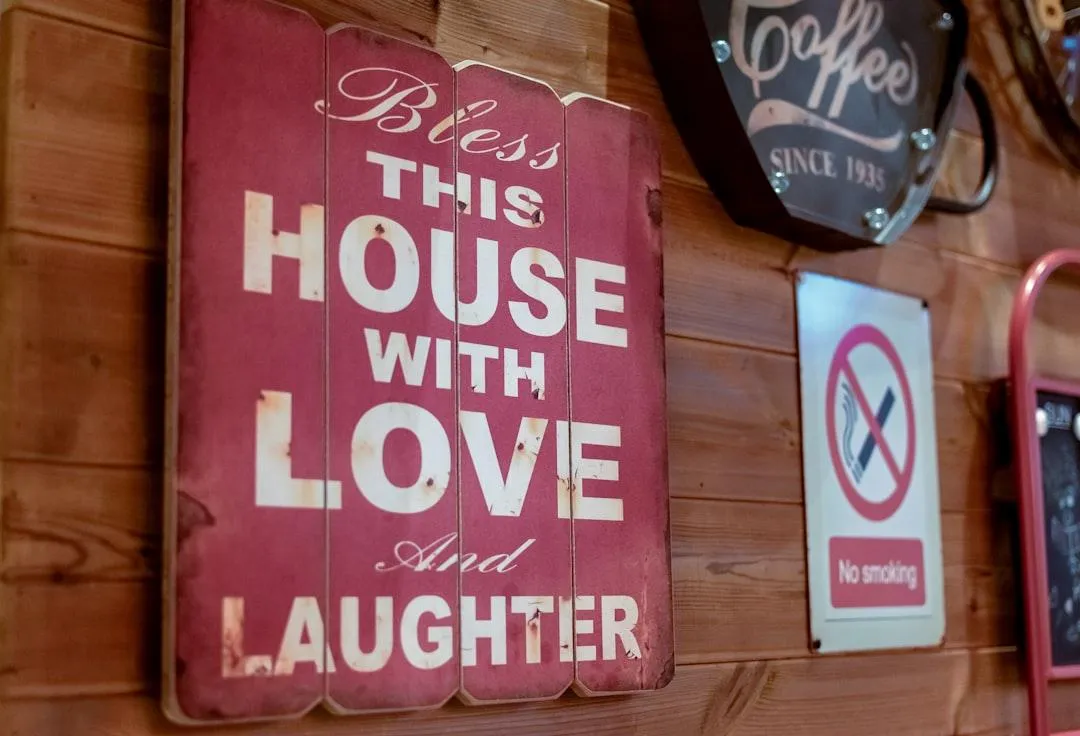

Grief: Learning to Laugh Again
Grief: Learning to Laugh Again
Third entry in the "Depths of Grief" blog series
It happens when you least expect it—a genuine laugh escapes your lips, and for a split second, you forget. The weight lifts momentarily, and you feel almost normal. Then comes the jarring realization: you're laughing in a world where your loved one no longer exists. The guilt arrives immediately, a punishing wave that sweeps away that brief moment of lightness.
How dare you feel joy when they are gone?
The First Smile That Feels Like Betrayal
I remember the first time I laughed after the loss. It was at something small—a ridiculous autocorrect error in a text message. The laugh burst out before I could stop it, natural and unguarded. For that brief moment, grief wasn't sitting on my chest.
And then I remembered.
The shame was immediate and overwhelming, as if I'd been caught doing something obscene. As if my capacity for joy somehow diminished the significance of my loss or the depth of my love. As if grieving properly meant grieving constantly.
The Strange Mathematics of Grief and Joy
There's a peculiar equation we create in our minds: that joy and grief exist in opposition, that feeling one somehow diminishes the other. We imagine them on opposite ends of a seesaw—when joy rises, our connection to our loved one and our honor of their memory must, by necessity, fall.
But grief doesn't actually work that way.
The truth is messier, more complex. Grief and joy don't cancel each other out—they coexist, often in the same moment. The capacity to feel happiness doesn't erase or diminish your loss. Your heart expands to hold both.
When Others Notice You're "Better"
"It's so good to see you smiling again."
"You seem more like yourself these days."
"I'm glad you're finally moving on."
These well-intentioned observations can feel like accusations when you're navigating the complex territory of grief. They suggest a finality, an endpoint to your mourning that doesn't match your internal experience.
What others don't understand is that your moments of joy don't signify that you're "over it." The grief hasn't gone anywhere. It's still there, running alongside everything else you feel.
The Permission Slip You Need
If you're reading this and recognizing yourself in these words, I want to offer you something: permission.
Permission to laugh without guilt. Permission to enjoy a beautiful day without feeling like you're betraying your person. Permission to have moments where grief isn't the central focus of your existence.
Your loved one—the person who knew you, who loved you—would they want your life to be joyless in their absence? Would they want their memory to be a burden that prevents you from experiencing anything positive?
I believe they wouldn't. I believe they would want moments of sunshine to break through the clouds.
Finding Joy in Remembrance
Some of my most healing moments have come from sharing funny stories about my person—remembering them not just with sadness but with laughter and warmth. The first time I could tell a story about them and smile instead of cry felt like a gift.
This is how we keep people alive in our hearts—not by forever freezing ourselves in the moment of their loss, but by carrying forward the fullness of who they were, including the joy and humor they brought to our lives.
The Both/And Reality of Grief
Grief professionals speak of the "both/and" nature of grief—the ability to hold seemingly contradictory truths simultaneously:
I am devastated by this loss AND I can still experience moments of joy
I miss them terribly AND I can engage fully in my present life
I will always carry this grief AND it will not always be the only thing I carry
This perspective doesn't diminish your loss or your love. Instead, it honors the complexity of human emotion and the resilience of the human heart.
The Guilt That Comes With Forward Movement
There are other kinds of guilt that emerge as time passes—guilt about aspects of life that continue to evolve without your person:
Making new memories they'll never be part of
Meeting people who will never know them
Reaching milestones they won't witness
Changing in ways they won't see
Making decisions without their input
Each of these can trigger a fresh wave of grief, a renewed sense of their absence. And yet, these forward movements are not betrayals. They're evidence of the continuing story of your life—a story that includes them, even as it continues beyond them.
When Joy Becomes a Portal to Pain
Sometimes joy itself becomes a direct pathway back to grief. You experience something beautiful or meaningful and immediately think, "I wish they could see this" or "They would have loved this."
The happiness becomes bittersweet, tinged with loss. In time, you may come to treasure these bittersweet moments—they're a form of connection, a way of bringing your loved one into your present experience.
The Dance of Remembering and Living
Grieving well doesn't mean grieving constantly. It means finding a way to integrate your loss into your ongoing life—allowing your loved one to remain an important part of who you are while still engaging fully with the world around you.
This integration happens gradually, in fits and starts. Some days the grief will be at the forefront, demanding your full attention. Other days it recedes into the background, still present but allowing space for other experiences.
Neither state is more "correct" than the other. Both are necessary parts of the journey.
A New Kind of Relationship
What we're really doing when we grieve is not "getting over" someone but renegotiating our relationship with them. Death ends a life, but it doesn't end a relationship. That continues, transformed.
In time, you may find that joy becomes not a betrayal of this relationship but an affirmation of it—a recognition that their influence on your life included teaching you how to love, how to find beauty, how to embrace joy when it arrives.
Perhaps the most profound way to honor someone you've lost is to live fully, to remain open to all that life offers—including moments of happiness, wonder, and yes, even joy.
The Permission to Be Exactly Where You Are
Wherever you find yourself today—whether wracked with guilt over a moment of happiness or tentatively embracing the return of joy to your life—know that you're exactly where you need to be.
There is no correct timetable, no right way to navigate these complex emotions. Your grief journey is uniquely yours, shaped by your relationship, your personality, your circumstances.
The only true mistake would be denying yourself the full range of human experience because you believe that's what grieving requires.
It doesn't.
What grief ultimately asks of us is not that we remain forever in pain, but that we learn to carry our love forward—a love that can coexist with new experiences, new connections, and yes, new joy.
In the next entry of "Depths of Grief," I'll explore how grief changes over time—not diminishing, necessarily, but transforming as it becomes woven into the fabric of your ongoing life.
For those struggling with grief-related guilt, the book "It's OK That You're Not OK" by Megan Devine offers compassionate insights on navigating these complex emotions without judgment.

Grief: Learning to Laugh Again
Grief: Learning to Laugh Again
Third entry in the "Depths of Grief" blog series
It happens when you least expect it—a genuine laugh escapes your lips, and for a split second, you forget. The weight lifts momentarily, and you feel almost normal. Then comes the jarring realization: you're laughing in a world where your loved one no longer exists. The guilt arrives immediately, a punishing wave that sweeps away that brief moment of lightness.
How dare you feel joy when they are gone?
The First Smile That Feels Like Betrayal
I remember the first time I laughed after the loss. It was at something small—a ridiculous autocorrect error in a text message. The laugh burst out before I could stop it, natural and unguarded. For that brief moment, grief wasn't sitting on my chest.
And then I remembered.
The shame was immediate and overwhelming, as if I'd been caught doing something obscene. As if my capacity for joy somehow diminished the significance of my loss or the depth of my love. As if grieving properly meant grieving constantly.
The Strange Mathematics of Grief and Joy
There's a peculiar equation we create in our minds: that joy and grief exist in opposition, that feeling one somehow diminishes the other. We imagine them on opposite ends of a seesaw—when joy rises, our connection to our loved one and our honor of their memory must, by necessity, fall.
But grief doesn't actually work that way.
The truth is messier, more complex. Grief and joy don't cancel each other out—they coexist, often in the same moment. The capacity to feel happiness doesn't erase or diminish your loss. Your heart expands to hold both.
When Others Notice You're "Better"
"It's so good to see you smiling again."
"You seem more like yourself these days."
"I'm glad you're finally moving on."
These well-intentioned observations can feel like accusations when you're navigating the complex territory of grief. They suggest a finality, an endpoint to your mourning that doesn't match your internal experience.
What others don't understand is that your moments of joy don't signify that you're "over it." The grief hasn't gone anywhere. It's still there, running alongside everything else you feel.
The Permission Slip You Need
If you're reading this and recognizing yourself in these words, I want to offer you something: permission.
Permission to laugh without guilt. Permission to enjoy a beautiful day without feeling like you're betraying your person. Permission to have moments where grief isn't the central focus of your existence.
Your loved one—the person who knew you, who loved you—would they want your life to be joyless in their absence? Would they want their memory to be a burden that prevents you from experiencing anything positive?
I believe they wouldn't. I believe they would want moments of sunshine to break through the clouds.
Finding Joy in Remembrance
Some of my most healing moments have come from sharing funny stories about my person—remembering them not just with sadness but with laughter and warmth. The first time I could tell a story about them and smile instead of cry felt like a gift.
This is how we keep people alive in our hearts—not by forever freezing ourselves in the moment of their loss, but by carrying forward the fullness of who they were, including the joy and humor they brought to our lives.
The Both/And Reality of Grief
Grief professionals speak of the "both/and" nature of grief—the ability to hold seemingly contradictory truths simultaneously:
I am devastated by this loss AND I can still experience moments of joy
I miss them terribly AND I can engage fully in my present life
I will always carry this grief AND it will not always be the only thing I carry
This perspective doesn't diminish your loss or your love. Instead, it honors the complexity of human emotion and the resilience of the human heart.
The Guilt That Comes With Forward Movement
There are other kinds of guilt that emerge as time passes—guilt about aspects of life that continue to evolve without your person:
Making new memories they'll never be part of
Meeting people who will never know them
Reaching milestones they won't witness
Changing in ways they won't see
Making decisions without their input
Each of these can trigger a fresh wave of grief, a renewed sense of their absence. And yet, these forward movements are not betrayals. They're evidence of the continuing story of your life—a story that includes them, even as it continues beyond them.
When Joy Becomes a Portal to Pain
Sometimes joy itself becomes a direct pathway back to grief. You experience something beautiful or meaningful and immediately think, "I wish they could see this" or "They would have loved this."
The happiness becomes bittersweet, tinged with loss. In time, you may come to treasure these bittersweet moments—they're a form of connection, a way of bringing your loved one into your present experience.
The Dance of Remembering and Living
Grieving well doesn't mean grieving constantly. It means finding a way to integrate your loss into your ongoing life—allowing your loved one to remain an important part of who you are while still engaging fully with the world around you.
This integration happens gradually, in fits and starts. Some days the grief will be at the forefront, demanding your full attention. Other days it recedes into the background, still present but allowing space for other experiences.
Neither state is more "correct" than the other. Both are necessary parts of the journey.
A New Kind of Relationship
What we're really doing when we grieve is not "getting over" someone but renegotiating our relationship with them. Death ends a life, but it doesn't end a relationship. That continues, transformed.
In time, you may find that joy becomes not a betrayal of this relationship but an affirmation of it—a recognition that their influence on your life included teaching you how to love, how to find beauty, how to embrace joy when it arrives.
Perhaps the most profound way to honor someone you've lost is to live fully, to remain open to all that life offers—including moments of happiness, wonder, and yes, even joy.
The Permission to Be Exactly Where You Are
Wherever you find yourself today—whether wracked with guilt over a moment of happiness or tentatively embracing the return of joy to your life—know that you're exactly where you need to be.
There is no correct timetable, no right way to navigate these complex emotions. Your grief journey is uniquely yours, shaped by your relationship, your personality, your circumstances.
The only true mistake would be denying yourself the full range of human experience because you believe that's what grieving requires.
It doesn't.
What grief ultimately asks of us is not that we remain forever in pain, but that we learn to carry our love forward—a love that can coexist with new experiences, new connections, and yes, new joy.
In the next entry of "Depths of Grief," I'll explore how grief changes over time—not diminishing, necessarily, but transforming as it becomes woven into the fabric of your ongoing life.
For those struggling with grief-related guilt, the book "It's OK That You're Not OK" by Megan Devine offers compassionate insights on navigating these complex emotions without judgment.
